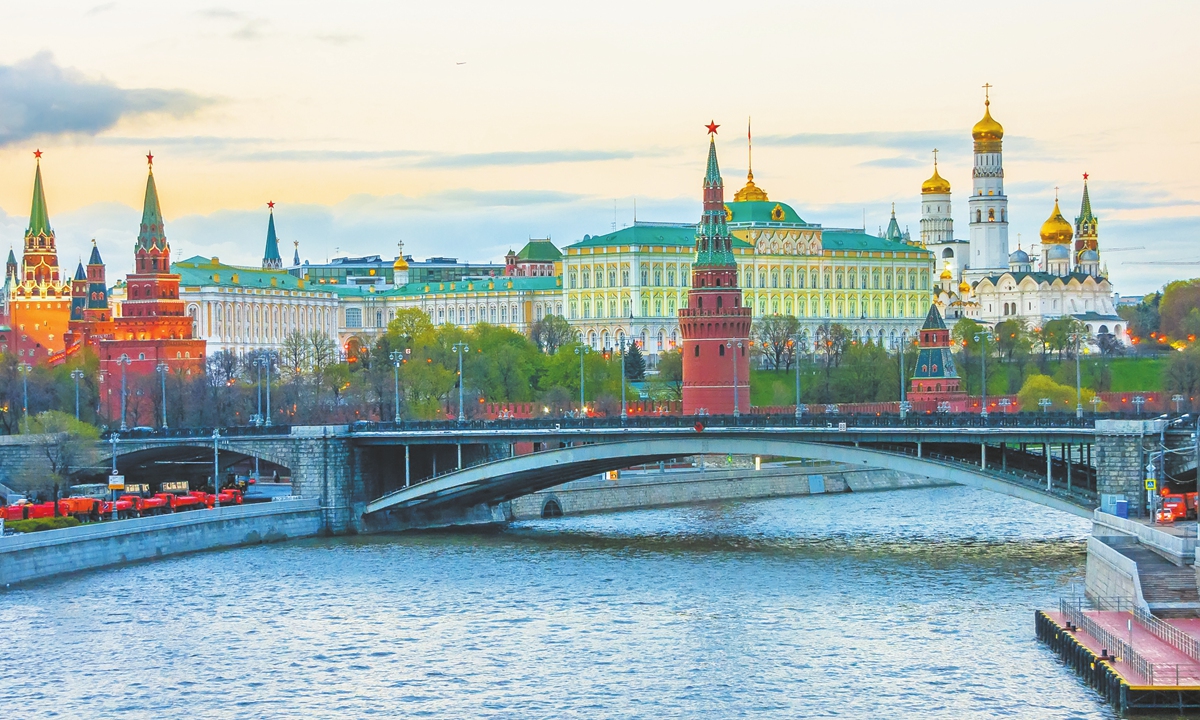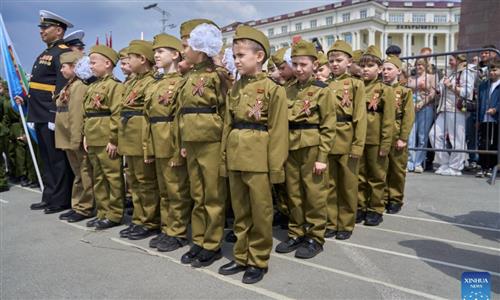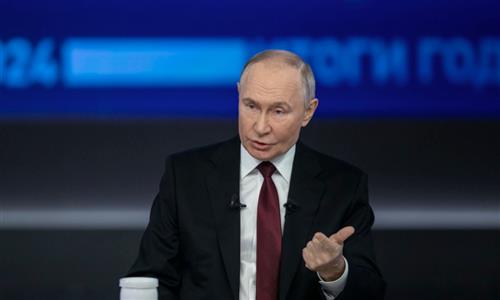China and Russia share responsibility for marking WWII victory with a call for peace

A view of the Kremlin, Moscow. Photo: VCG
Editor's Note:
Chinese President Xi Jinping will pay a state visit to Russia from May 7 to 10 and attend the celebrations marking the 80th anniversary of the Victory in the Great Patriotic War in Moscow, at the invitation of Russian President Vladimir Putin. What is the significance of China and Russia collaborating to commemorate this victory amid a complex international environment? What role can China and Russia play in jointly promoting more inclusive global governance and multilateral systems? Global Times (GT) reporter Wang Wenwen talked to Leonid Kovachich (Kovachich), a Russian sinologist and economist, on these issues.
GT: What are your expectations for President Xi's visit to Moscow?
Kovachich: This visit includes not only participation in the Victory Day celebrations but also a full agenda consistent with a state visit. The leaders of the two countries will have the opportunity to discuss the current state of bilateral relations and cooperation on international platforms.
Therefore, this visit is of great significance - not only as a chance to jointly honor the memory of Russian and Chinese ancestors who gave their lives in World War II for a just and stable world, but also as an opportunity for strategic partners to align their positions on key global issues.
GT: What is the significance of China and Russia collaborating to commemorate the 80th anniversary of the victory in WWII amid a complex international environment?
Kovachich: This year, both Russia and the rest of the world commemorate a profoundly significant date for all humanity - the 80th anniversary of the victory in World War II. The countries of the anti-Fascist coalition defeated fascism, the greatest threat in world history. The current international order, led by the UN, has its roots in this moment. Having endured a monstrous and bloody war, the world recognized the necessity of establishing an order that would uphold justice and peace, and foster the development of human civilization. Despite the occurrence of local conflicts in various parts of the world since then, adherence to the purposes and principles of the UN Charter has helped prevent a new world war.
President Xi has repeatedly stated that the world is now undergoing changes unseen in a century. Indeed, these changes span political, economic, social and cultural spheres. Humanity is constantly developing, and the natural course of development demands serious structural transformation.
However, in order to prevent the repetition of past tragedies, it is crucial to remember the lessons of history and avoid rewriting historical facts. Substituting the UN Charter with vague "rules" and undermining the UN's authority as the cornerstone of world order risks global chaos and destabilization. Currently, there is growing concern that we are witnessing attempts to distort history for political gain. In some cases, there are even efforts to justify Nazism, which is completely unacceptable.
As the legal successor to the Soviet Union - which lost tens of millions of lives in the brutal fight against fascism - Russia deeply understands the importance of preserving historical memory. Top leaders from dozens of countries have confirmed their participation in Russia's events commemorating the 80th anniversary of victory, signaling that the global majority shares a unified perspective on the lessons of history and the importance of remembrance.
GT: While history has taught us the importance of remembrance, people across the world are longing for a peaceful and prosperous life. Nonetheless, we have seen a trend of deglobalization and unilateralism, marked by the US tariff war waged against most countries in the world, in particular China. How do you analyze the consequences of the tariff war? Do you view China's countermeasures as a response to US bullying in the economic field?
Kovachich: The current global trade system took shape throughout the 20th century under the influence of globalization and the international division of labor. Until recently, the US was one of the main drivers of these trends. Global competition, trade liberalization and the division of labor were the foundations actively promoted by the US which shaped the global economy for decades.
The trade war with China was launched during Donald Trump's first term, with the stated goal of reducing the US trade deficit with China. However, the root cause of trade imbalances lies primarily in the role of the dollar as the global reserve currency - a factor that was largely ignored. In practice, tariffs have proven to be an ineffective tool.
The current Trump administration has introduced new tariff and non-tariff barriers. Clearly, the goals of the trade war extend beyond trade imbalances. For example, how else can one explain the restrictions on the export of high-tech goods and semiconductors from the US to China? These are high value-added products that China used to import in the hundreds of billions of dollars - more than crude oil. Increasing such exports could have reduced the trade deficit, yet the US chose the opposite path. The real reason appears to be a desire to hinder China's development. When China emerged as a serious competitor, and the US feared losing dominance in key sectors, it resorted to tariffs and other restrictions to contain its rival.
At the outset of the trade war, China responded with limited and targeted measures. In recent years, China has been building its capacity and developing responses to escalating trade tensions. When the Trump administration raised tariffs to 145 percent, effectively threatening to halt trade, China responded symmetrically. As the Chinese Foreign Ministry stated: "If war is what the US wants, be it a tariff war, a trade war or any other type of war, we're ready to fight till the end."
GT: In the context of the US undermining multilateralism, what role do you expect China and Russia to play in jointly promoting more inclusive global governance and multilateral systems?
Kovachich: China and Russia share common views on many international issues and cooperate in multilateral organizations, including the UN Security Council. Their collaboration within BRICS and the SCO is crucial. Moscow and Beijing advocate for multilateral models of global governance and support reforms of international development institutions to better serve the interests of the Global South. As major powers, both nations bear a shared responsibility for prosperity and stability, especially in Eurasia, and support a just world order based on the purposes and principles of the UN Charter.
It is symbolic, therefore, that the leaders of China and Russia will meet during the 80th anniversary celebrations of the victory in World War II. In doing so, they not only honor history but also reaffirm their commitment to preserving an order that prevents the tragedies of the 20th century from being repeated.



